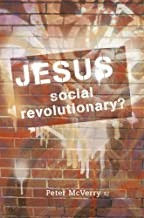Jesus Social Revolutionary?
- Profiles in Catholicism
- Aug 22, 2022
- 2 min read
Reviewed by Eileen Quinn Knight, Ph.D.

The author is a Jesuit priest who has spent many years working with homeless young people. In 1979 he set up a hostel for homeless boys. Four years later he established the Arrupe Society, now known as the Peter McVerry Trust to provide accommodation and support for young people who are homeless. Based at the Jesuit Centre for Faith and Justice in Upper Sherrard Street. “In the context of an Ireland that has become unbelievably rich, but however many feel uncomfortable at the levels of homelessness and poverty that continue to exist, Jesus: Social Revolutionary? Is an attempt to open a debate about the meaning of our faith and the obligation that belonging to the Christian community imposes on us.
This book communicates life, not just information. It comes from the heart of the author, the result of many years working, making friends with and enjoying the company of people spoken of by the Pharisees as ‘the sinners and outcasts’ Jesus friends were in Palestine; Peter McVerry’s are in Dublin. This book is profound, clearly written charming and challenging. Peter McVerry writes of himself. ‘I am neither a theologian nor a scripture scholar’. True, he has no footnotes, nor pages of acknowledgement to others writers on Jesus. He also writes from the heart, but where has heart is, he applies his brain also and in terse prose he gets to the heart of the matter about God, ourselves, every other human being and all creation.
Could it be that what we often consider to be the essence and practice of our faith in God is, in fact, a subtle way of keeping God out of the way, so that God does not interfere, unsettling our plans and imposing impractical and impossible ways of behaving? The Jewish writer on mysticism, Martin Buber, a most spiritual Martin Buber wrote: “Nothing so masks the face of God as religion” How does this statement affect you after you read this book.
Where is God? “Nearer to you than you are to yourself.” In every human being we encounter. There are no exceptions, not even among our enemies! Creation itself is a sacrament of God. What is the most important moment of your life/It is the present moment, for God is always in the now. And what is this God like” God is compassionate to all creation. God’s love is without limit forgiveness is given even before we ask for it. God is the answer to the restlessness of our hearts, to our deepest longings. Jesus identifies himself with us whoever we are, whatever our background. All this and much more you will find in this book. It is a book to be pondered, prayed and lived. It will bring you a peace that cannot be taken from you. It will also bring you trouble, as Jesus foretold, but the joy of Jesus’ company makes the burden light. This book does not hold the ordinary answers that we’ve had in the past but more ‘revolutionary’ calls to social justice and a life with Christ.
